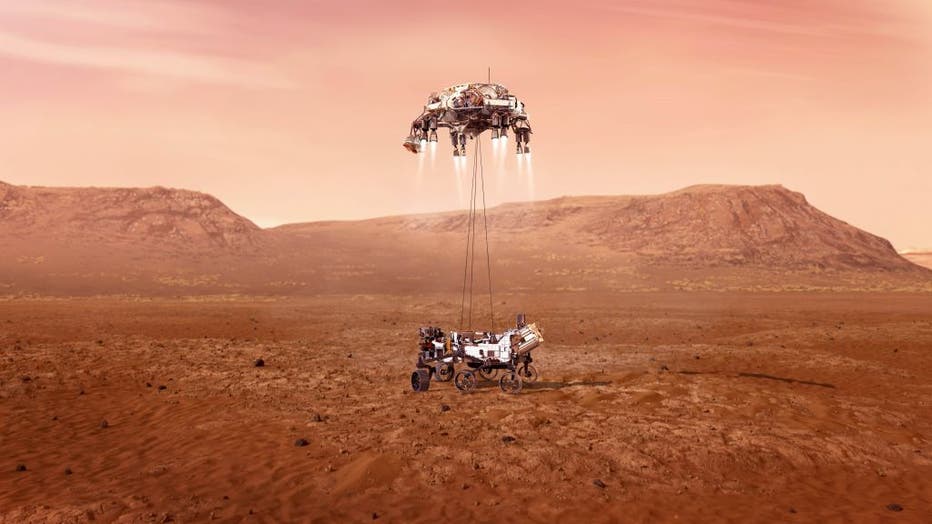NASA seeks new ideas for Mars sample return mission due to budget constraints
NASA ordered to give moon its own 'time zone'
The Biden administration has given the space agency until the end of 2026 to hammer out a new "time zone" specific to the moon. LiveNOW from FOX's Josh Breslow spoke with Professor Catherine Heymans, Scotland's Astronomer Royal about the reasons behind this.
NASA is rethinking how to bring samples from Mars back to Earth after a review found that current budget constraints would delay the Mars sample return mission to 2040 and cost more than $11 billion.
NASA's Mars rover, Perseverance, has been collecting samples on the Red Planet that were to be collected by a later mission and brought back to Earth for analysis.
NASA and the European Space Agency had an elaborate plan to bring the first samples from Mars back to Earth. The plan involved a fleet of robots, including the Perseverance rover, a new Martian lander, a sample-catching spacecraft and two tiny helicopters. However, an independent review board found last September that the current strategy would not be achievable until 2040 and would cost over $11 billion.
NASA'S MARS ROVER INSTRUMENT MOXIE GENERATES ENOUGH OXYGEN FOR SMALL DOG
"That is unacceptable to wait that long," NASA Administrator Bill Nelson said. "It's the decade of the 2040s that we're going to be landing astronauts on Mars."
On Monday, Nelson said the space agency is seeking new ideas to achieve the sample return for under $7 billion and bring Martian dirt and rocks back by the 2030s.
The space agency is asking the space industry and all NASA centers to devise an alternate plan for getting it back quicker and cheaper. Under the current plan, Nelson said the Mars sample return mission budget would "cannibalize" from other science missions, including to Saturn's moon Titan and two missions to Venus.
Nelson said NASA was put in this position because of the budget cuts set by Congress for Fiscal Year 2024.

This image made available by NASA shows an illustration of NASA's Perseverance rover landing safely on Mars.
"I'm expecting to get everybody in high gear, and we have the answers to this by this fall," Nelson said.
Science Mission Directorate associate administrator Nicky Fox said the agency is seeking "heritage" and "tried and true" technology for the new Mars sample return effort.
"We can look at things that we've already used to land things on another planet. Obviously, we've never launched from another planet. And that's actually what makes my sample return such a challenging and interesting mission," Fox said.
The sample return requires launching a capsule from Mars to be intercepted by another spacecraft in orbit.
Fox said it's possible to bring the samples back under the current plan before 2040, but it would require a "much higher annual budget that does not fit with the current environment that we have."
The space agency is asking for new Mars sample return ideas to be submitted by this fall.

